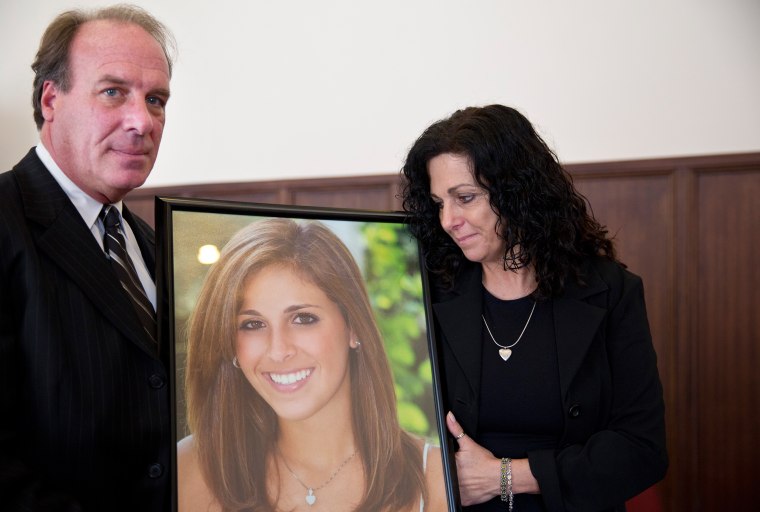During Courtney Lockhart’s capital murder trial, the jury heard testimony that he had returned from a bloody 16-month deployment to Ramadi, Iraq, a changed man.
His sweet nature was replaced by anger and paranoia, his ex-fiancee said. He hid in the closet at night, started living out of his car, drank too much and once put a gun to his own head.
The defense argued that Lockhart, who was dishonorably discharged, was suffering from untreated PTSD and wasn’t in his right mind when he abducted, robbed and fatally shot college student Lauren Burk in 2008.
The Alabama jury rejected the prosecution’s call for the death penalty and sentenced him to life. But in a rare move, a judge overrode the panel’s decision and put him on death row.

The case of Lockhart — whose brigade had a dozen other men charged with murder or attempted murder after coming home from Iraq — is highlighted in a new report by the Death Penalty Information Center, a group that opposes capital punishment.
“At a time in which the death penalty is being imposed less and less, it is disturbing that so many veterans who were mentally and emotionally scarred while serving their country are now facing execution,” said Robert Dunham, the center's executive director.
About 300 veterans are on death row nationwide, about 10 percent of all those condemned to die, the group estimates.
It's unclear how many have been diagnosed with PTSD or have symptoms, but Dunham says that in too many cases, a veteran's mental scars are not examined closely enough by defense lawyers, prosecutors, judges, juries and governors who can commute death sentences.
READ: Georgia Vet WIth PTSD Is First Inmate Executed in 2015
The first prisoner executed this year, Andrew Brannan, was a Vietnam vet on disability for PTSD and bipolar disorder when he fatally shot a deputy nine times during a speeding stop.
Dash-cam video showed Brannan dancing in the street and saying "shoot me" before he pulled a rifle from his car and fatally shot the 22-year-old cop. The U.S. Supreme Court declined to stop his lethal injection.
Kent Scheidigger, legal director of the pro-capital punishment Criminal Justice Legal Foundation, said that since PTSD does not normally cause sufferers to become violent, the condition "may not have anything whatever to do with the crime."
"If a crime is sufficiently heinous, a death sentence may be the just outcome," he said. "Mental issues may be weighed in the balance, but they would have to be very severe before they outweighed, say, torture or serial killing."
At Lockhart's trial, according to media accounts at the time, a prosecution expert testified that he was not mentally ill and knew what he was doing was wrong when he killed Burk. A defense expert said he had symptoms of PTSD but not a diagnosed case.

After the jury heard testimony from those close to Lockhart about the problems he experienced after his military service, the panel voted 12-0 to spare his life, but the judge overruled them, saying they didn't know about other robberies he had committed.
Supreme Court Justice Sonia Sotomayor later wrote that jurors were "influenced by mitigating circumstances relating to severe psychological problems Lockhart suffered as a result of his combat in Iraq.''
"Lockhart spent 16 months in Iraq; 64 of the soldiers in his brigade never made it home, including Lockhart’s best friend," she wrote. "The soldiers who survived all exhibited signs of posttraumatic stress disorder and other psychological conditions. Twelve of them have been arrested for murder or attempted murder."
The Death Penalty Information Center said its report was meant as a "wake-up call" to spark conversation about imposing capital punishment on trauma survivors.
"The country owes its veterans a thorough examination of the use of the death penalty in their cases, even when their offenses are especially grievous," the report said.
